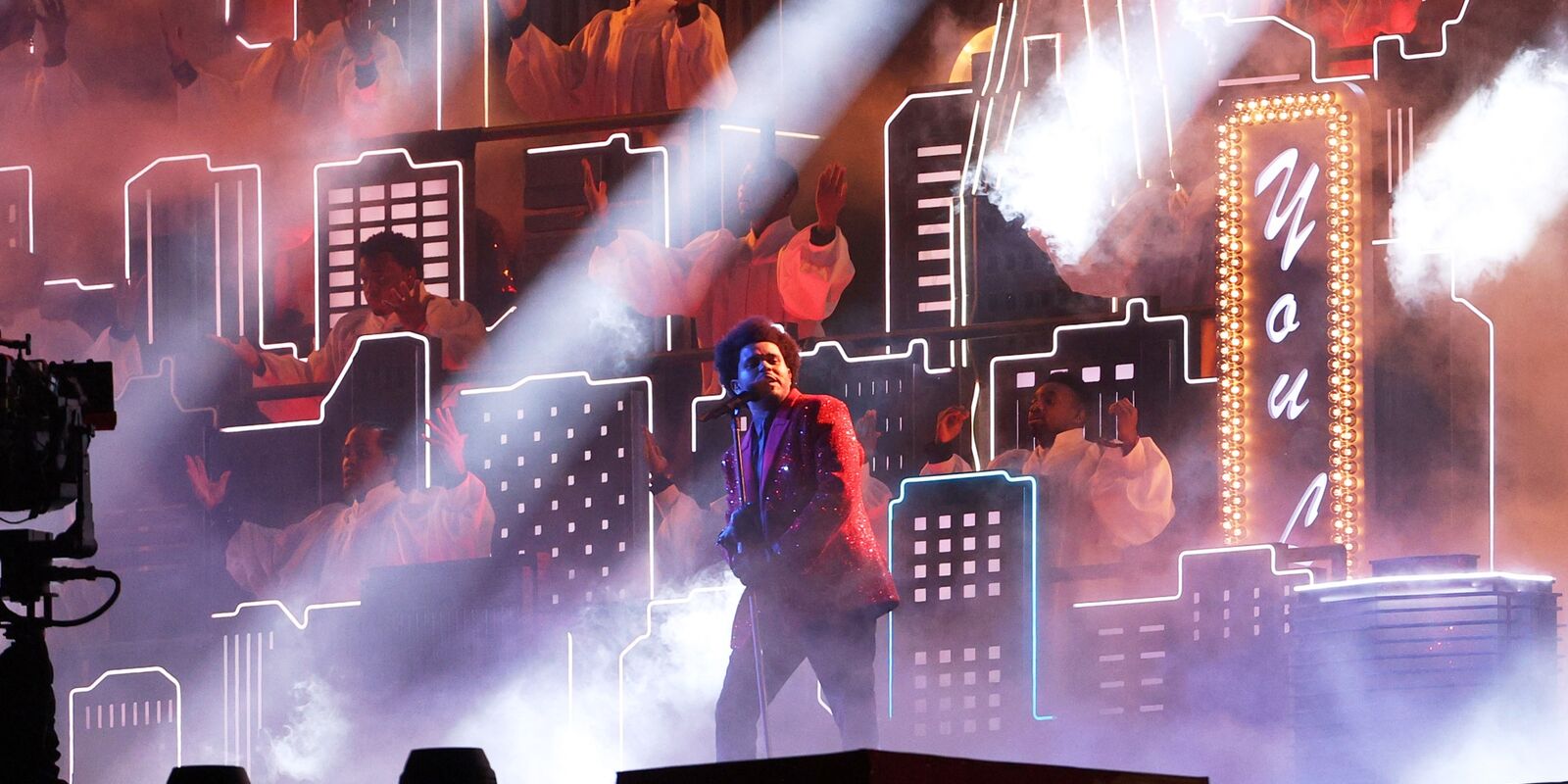
The Weeknd Shatters Record With a Single That People Can’t Quit
Two days before the Super Bowl this year, Canadian R&B singer The Weeknd dropped his first greatest-hits album.
Best-of albums are rare in the post-CD era, especially when Spotify auto-populates playlists of hit songs for hundreds of different artists. They are even less common for 30-year-old singers with just a handful of albums in their catalog. But The Weeknd knew that his performance at the Super Bowl was going to introduce him to millions of potential new listeners.
“He really took his time creating the set and added a whole separate production for each song,” his manager, Wassim “Sal” Slaiby, said in an email. “It was about performing his many big hits that people worldwide love and are excited to see while also giving a nod to longtime day-one fans.”
The album debuted in the second position on the Billboard charts, the best performance for a greatest hits album since late 2019. And the impact wasn’t just felt in the U.S. Five of the songs he performed ended up in Spotify’s global top 100 the following week, including two tracks that were more than four years old.
The Super Bowl bump meant The Weeknd was the biggest pop star in the world last month, generating more streams than any artists on Spotify, and experiencing a surge in YouTube views, album sales and Instagram interactions. That’s all the more remarkable considering that his latest album of new music came out more than a year ago.
See other Pop Star Power Rankings
But for The Weeknd — born Abel Tesfaye — the Super Bowl performance cemented his status as one of the most famous musicians in the world, capping off a year in which he had one of the five biggest albums globally.
“The Weeknd’s audience and fan base will continue to grow exponentially after appearing on the world’s biggest stage,” Monte Lipman, co-founder and chief executive officer of his label, Republic Records, said in an email.
Booking the Weeknd was a bold move by the NFL, which had played it safe for years with the halftime show ever since Justin Timberlake exposed Janet Jackson’s nipple on national TV in 2004. For many years after that controversy, the league relied on aging rock stars and heritage acts that catered to older fans, recruiting Paul McCartney, the Rolling Stones, Prince, Tom Petty, Bruce Springsteen and The Who.
After seven consecutive years of acts that were at least 50 years old, the league decided to experiment again with more contemporary stars, booking Black Eyed Peas and Beyoncé. In 2014, the league took its biggest chance yet, ceding the stage to a young pop star named Bruno Mars.
The league had initially wanted Mars for the season opener, which he declined. But it was so smitten that it offered him the halftime slot at the Super Bowl. Mars had released just two studio albums at that point, but he delighted viewers with renditions of “Locked out of Heaven” and “Just the Way You Are.”
He used the event as a springboard to go back out on tour, selling out arenas from Australia to Arkansas. By the time his next album rolled around, his growing fan base turned “Uptown Funk” into the biggest hit of 2015 and earned him a Grammy for album of the year in 2018.
The league felt comfortable enough after Bruno Mars to return to contemporary stars full-time, adding Katy Perry, Lady Gaga and Timberlake.
But The Weeknd, now 31, is a departure from the pop confections of most of the halftime artists. His music is decidedly darker than anything you’d hear from past performers, earning him a reputation as one of R&B’s finest villains, in the words of critic Craig Jenkins.
“Booking him was pretty radical in terms of who you’d normally book for the Super Bowl,” said Keith Caulfield, one of the chart maestros at Billboard. “His body of work is much more challenging to a pop audience than Perry or Gaga.”
A darling of independent music blogs early in his career, The Weeknd got his first taste of mainstream fame with “Can’t Feel My Face,” the third single from his second studio album. Produced by Swedish hitmakers Max Martin and Ali Payami, the song became The Weeknd’s first No. 1 hit.
His next album, “Starboy,” continued his ascent, but it was his fourth, “After Hours,” that launched him into the stratosphere. The album debuted atop the Billboard charts, where it remained for four consecutive weeks. It ended 2020 as the fourth best-selling album of the year in the U.S.
One of its singles, “Blinding Lights,” eclipsed “Can’t Feel My Face” as his biggest song yet. The track has been in the top 10 on the charts for a full 52 weeks. “That’s never happened before,” said Caulfield.
And yet even with all its success, that song received a huge boost from the Super Bowl. Streams of the track jumped 42%, per Billboard.
“It has lasting power that’s record-breaking,” Caulfield said.